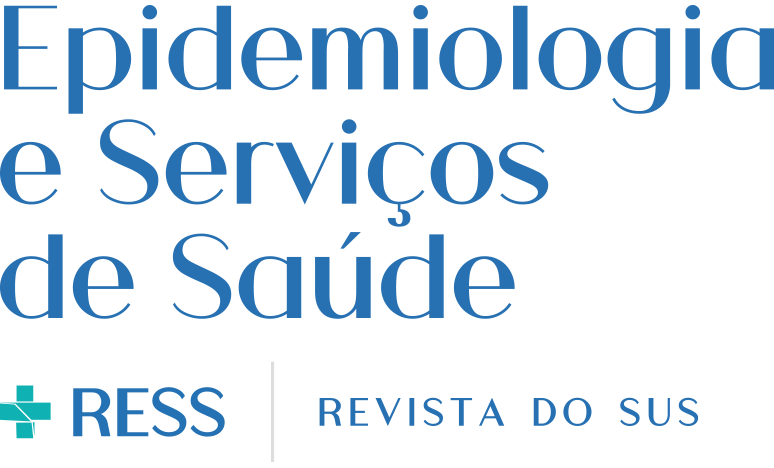Abstract
Objective:
To describe the prevalence of underweight and obesity indicators among individuals registered as traditional peoples and communities in the Food and Nutrition Surveillance System, across Brazil, in 2019.
Methods:
This was a descriptive study using individual secondary data from participants receiving care in the Primary Health Care within the Brazilian National Health System.
Results:
In the study population (N = 13,944), there was a higher prevalence of short stature among male children and adolescents (14.2%), when compared to their female counterparts (11.8%); in the adult female population, there was a higher prevalence of obesity (23.0%), when compared to the male population (11.3%); the prevalence of low height-for-age in riverine communities (18.5%) and obesity in the adult faxinalense population (75.1%) stood out.
Conclusion:
Anthropometric disparities between different communities require tailored responses, emphasizing targeted primary health care and programs to ensure food and nutrition security.
Keywords:
Nutritional Epidemiology; Primary Health Care; Health Information Systems; Quilombolas; Roma (Ethnic Group); Descriptive Studies
Study contributions
Main results
It was possible to identify a higher prevalence of low weight and height-for-age in the child population of riverine communities, while faxinalense communities showed a higher prevalence of obesity in adults.
Implications for services
Continuous improvement in the implementation of SISVAN protocols is recommended, as well as strengthening the assistance provided to communities with the worst indicators.
Perspectives
Studies assessing the potential impact of interventions to mitigate the effects of malnutrition in communities, through in-depth qualitative research or probabilistic quantitative studies using primary data.

 Thumbnail
Thumbnail
 Thumbnail
Thumbnail
 Thumbnail
Thumbnail
 Thumbnail
Thumbnail
 Thumbnail
Thumbnail
 Thumbnail
Thumbnail
 a) SISVAN: Sistema de Vigilância Alimentar e Nutricional (Food and Nutrition Surveillance System).
a) SISVAN: Sistema de Vigilância Alimentar e Nutricional (Food and Nutrition Surveillance System).
 a) SISVAN: Sistema de Vigilância Alimentar e Nutricional (Food and Nutrition Surveillance System).Note: Lines estimated from quantile regression models related to the 3rd, 15th, 50th, 85th and 97th percentiles, with anthropometric measurement as the dependent variable and age as the independent variable. Quadratic terms were included in the model to account for curvilinear relationships.
a) SISVAN: Sistema de Vigilância Alimentar e Nutricional (Food and Nutrition Surveillance System).Note: Lines estimated from quantile regression models related to the 3rd, 15th, 50th, 85th and 97th percentiles, with anthropometric measurement as the dependent variable and age as the independent variable. Quadratic terms were included in the model to account for curvilinear relationships.
 Legend: ribeirinhos (Riverine dwellers); pescadores artesanais (Artisanal fishermen); extrativistas (Extractivist communities); comunidades do cerrado (Cerrado communities); pantaneiros (Pantanal dwellers); comunidades fundo e fecho de pasto (Fundo e fecho de pasto communities); seringueiros (Rubber tappers); pomeranos (Pomeranians); agroextrativistas (Agro-extractivist communities); Quebradeiras de coco de babaçu (Babassu coconut breakers); marisqueiros (Shellfish gatherers); and povos de terreiro (Terreiro communities).
Legend: ribeirinhos (Riverine dwellers); pescadores artesanais (Artisanal fishermen); extrativistas (Extractivist communities); comunidades do cerrado (Cerrado communities); pantaneiros (Pantanal dwellers); comunidades fundo e fecho de pasto (Fundo e fecho de pasto communities); seringueiros (Rubber tappers); pomeranos (Pomeranians); agroextrativistas (Agro-extractivist communities); Quebradeiras de coco de babaçu (Babassu coconut breakers); marisqueiros (Shellfish gatherers); and povos de terreiro (Terreiro communities).
 Legend: ribeirinhos (Riverine dwellers); pescadores artesanais (Artisanal fishermen); extrativistas (Extractivist communities); comunidades do cerrado (Cerrado communities); pantaneiros (Pantanal dwellers); comunidades fundo e fecho de pasto (Fundo e fecho de pasto communities); seringueiros (Rubber tappers); pomeranos (Pomeranians); agroextrativistas (Agro-extractivist communities); Quebradeiras de coco de babaçu (Babassu coconut breakers); marisqueiros (Shellfish gatherers); and povos de terreiro (Terreiro communities).
Legend: ribeirinhos (Riverine dwellers); pescadores artesanais (Artisanal fishermen); extrativistas (Extractivist communities); comunidades do cerrado (Cerrado communities); pantaneiros (Pantanal dwellers); comunidades fundo e fecho de pasto (Fundo e fecho de pasto communities); seringueiros (Rubber tappers); pomeranos (Pomeranians); agroextrativistas (Agro-extractivist communities); Quebradeiras de coco de babaçu (Babassu coconut breakers); marisqueiros (Shellfish gatherers); and povos de terreiro (Terreiro communities).

